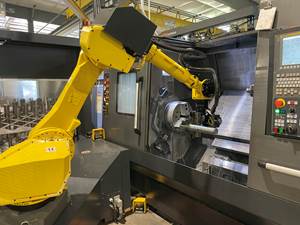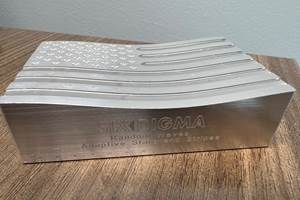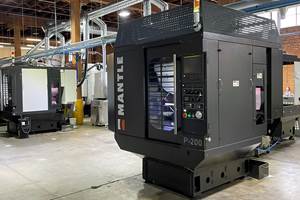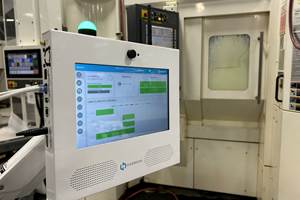How to Pass the Job Interview as an Employer
Job interviews are a two-way street. Follow these tips to make a good impression on your potential future workforce.
Share




It seems that every time I turn around, companies are complaining that they are having difficulty finding skilled people to fill positions. This is a global issue with a shared root cause: We are not training enough people to fill our industry’s needs. But there may be another reason why many in the machining industry are not attracting potential employees:
The employer failed the job interview.
When employers interview a potential employee, they are determining whether or not the person has the qualifications, attitude and fit for the organization. That being said, it is becoming more and more apparent that the potential employee is interviewing the employer at the same time. In many cases, the employer fails the interview and the potential employee walks away. I want to explore some of the reasons why employers fail the interview stage.
When a potential employee comes to an interview, that person has likely conducted research on your company and its culture. The employee is looking for a company that fits their needs as much as the you are looking for an employee that fits yours. This research will determine if the candidate will actually attend the interview or not.
If the interviewee actually shows up to your shop, they will be looking for information about the work environment. Many will want to know about the investment strategy of the company. When was the last time the company purchased a new piece of equipment? They do not mean new to the company (used), but a real, new piece of equipment. I have seen machine shops that look like the last investment made was many decades ago. Most employees want to work for a company that invests in itself. They want to work for a company that they can grow with and not one they can die with!
Potential employees will also want to sense how organized the machine shop is. Does it have a tool room? Is it stocked? Too many times, they see shops that have tools lying around all over the place. Spending a significant amount of time looking for tooling is frustrating, and being frustrated at work is not fun; therefore, it is better not to work at an unorganized shop in the first place.
Another consideration is the tooling. Does the shop look well supplied? There is nothing worse to a machinst than not having the proper tools to do the job. I have seen too many companies buy cheap tooling online that will only serve to frustrate an employee. Most employees want to be productive. If they see a shop that is using poor-quality tooling, then they won’t want to be there.
When potential employees are given a shop tour, they will quickly get a feel for the working atmosphere of the shop. Are there people standing around? Are they working like they don’t care about what they are doing? Employers often indicate that they are very busy, but the employees in the shop do not always reflect this. This poor working atmosphere in a shop is not attractive.
The last point that I want to go over is the cleanliness of a shop. A shop that does not appear to be clean reflects a certain attitude. I have seen too many shops that are dark and dirty. Potential employees don’t like seeing this. It gives a negative impression and reflects badly on the employer and their values. A clean shop means that the employer cares for the work environment and its employees. No potential employee wants to work in a shop that does not care about its working environment.
The lack of skilled workers is a real problem, and the machining industry will have to keep facing this over the coming years. That being said, it does not help if your machine shop does not attract workers because you failed the interview.
Related Content
Same Headcount, Double the Sales: Successful Job Shop Automation
Doubling sales requires more than just robots. Pro Products’ staff works in tandem with robots, performing inspection and other value-added activities.
Read MoreBuilding Machines and Apprenticeships In-House: 5-Axis Live
Universal machines were the main draw of Grob’s 5-Axis Live — though the company’s apprenticeship and support proved equally impressive.
Read MoreIn Moldmaking, Mantle Process Addresses Lead Time and Talent Pool
A new process delivered through what looks like a standard machining center promises to streamline machining of injection mold cores and cavities and even answer the declining availability of toolmakers.
Read MoreCan Connecting ERP to Machine Tool Monitoring Address the Workforce Challenge?
It can if RFID tags are added. Here is how this startup sees a local Internet of Things aiding CNC machine shops.
Read MoreRead Next
Setting Up the Building Blocks for a Digital Factory
Woodward Inc. spent over a year developing an API to connect machines to its digital factory. Caron Engineering’s MiConnect has cut most of this process while also granting the shop greater access to machine information.
Read MoreBuilding Out a Foundation for Student Machinists
Autodesk and Haas have teamed up to produce an introductory course for students that covers the basics of CAD, CAM and CNC while providing them with a portfolio part.
Read More5 Rules of Thumb for Buying CNC Machine Tools
Use these tips to carefully plan your machine tool purchases and to avoid regretting your decision later.
Read More































